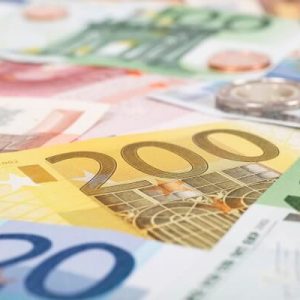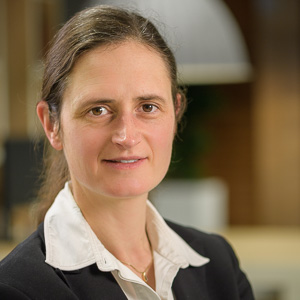
The Netherlands is a land of knowledge, which is why it implemented a tax measure known as the “Innovatiebox” (innovation box). As tax measures go, this proved a popular means of encouraging innovation. Since 2017, however, the rules of the game have altered significantly. Remco Dijkstra (KPMG Meijburg & Co) and Huub Maas (V.O.) have provided the following assessment of the situation as it currently stands.
The “Innovatiebox” that was implemented in the Netherlands was a great success and countless businesses, both large and small, have benefited from this innovation-based tax measure, which allowed them to pay corporation tax of only 5% on the profits they derive from their innovations, instead of 25%. But as Senior Tax Manager, Remco Dijkstra, explains, “the OECD (Organisation for Economic Co-operation and Development) has proposed a set of minimum requirements for such schemes and these have been ratified by the Netherlands.” Following the implementation of the OECD guidelines, the Innovation box has been redesigned, but the tax benefit itself has stayed the same. “From this year onwards and as a large company (with a turnover of EUR 250 million in a five-year period [editor]), you now need to have at least two tickets in order to access the Innovation box. Not only do you need to possess a declaration pursuant to the Research and Development (Promotion) Act (WBSO), but you must also fulfil an additional requirement in the area of technical intellectual property rights, such as a patent (including foreign rights, as long as the innovation has taken place in the Netherlands). Many companies that made use of the old scheme already hold a WBSO declaration, but do not hold any patents. It is those companies that will therefore need to take action. If they do nothing, their eligibility to make use of this tax scheme will gradually cease to apply under the transitional provisions, which remain valid until June 2021. After that, they will no longer be entitled to benefit from that scheme.”
“Patents? Not for us.”
The patent attorney, Huub Maas, remarks that companies are taking action in advance of changes to the regulations: “During the past few months, I have had meetings with a variety of companies in order to discuss patents and some of those were companies that never thought of registering a patent before. In many cases, they firmly believed that applying for a patent was too costly or that they didn’t have any inventions that required protection. One of the sectors, in which I found this to be the case was the food sector. People were amazed to find out that it possible to obtain a patent on a sugar-free breakfast biscuit. For them, it was an eye-opener that a patent could be issued for a “recipe” or a “formulation”, as long as it resolves a technical problem. Let’s be honest – the previous system was much easier, but I am noticing that the new Innovation box is causing some companies to become more aware of patents and of the fact that they represent capital and provide a means of asserting ownership over an invention. It is also causing them to realise that the things they are doing are actually very special. In that regard, the patent therefore also takes on the role of a quality hallmark. It is, of course, down to the companies to weigh up for themselves whether the investments they will need to make will be offset by the income that will result. It is true to say that nowadays, recouping the cost involved in taking out a patent is easier than it used to be.”
Tax regime
Another attractive aspect of this particular tax regime is the benefit associated with related intangible assets. Remco Dijkstra explains this as follows: “This is a completely fictional scenario, but imagine that you hold a patent for a process used to produce a filet americain with a long shelf-life and also have a WBSO declaration. On that basis, you will be eligible to receive the benefits afforded by the Innovation box. But this can also have an overarching effect, if the application from the patent (prolonged shelf-life) is used in a different food product. If you do that, the profits from that product will also be eligible for the favourable regime under the Innovation box.”
Small businesses
For small businesses, there won’t be many changes when it comes to accessing the Innovation box. A WBSO declaration will be enough. Remco Dijkstra continues: “Many of those companies will already be using the WBSO. The requirements to obtain a WBSO have become more achievable; as long as an innovation is new to your company. Also for, for instance, start-ups, the WBSO forms an excellent foundation. To use the WBSO, your company doesn’t need to be making any profit. The Innovation box becomes an attractive proposition if profit is made in the short term.”
Will this make the Netherlands more innovative?
Of course the aim of the old and of the new Innovation box is to ensure that the Netherlands becomes more innovative. Remco Dijkstra, however, is doubtful whether this amendment to the law will have an impact: “I don’t know whether this will cause us to become more or less innovative. The financial situation is now different. Only time will tell whether companies will now start taking out more patents, but the change in the rules will certainly cause businesses to look more closely at the opportunities that exist when it comes to taking out patents. I am also noticing that an increasing number of companies are now seeing the necessity to innovate. Take the food sector, for example. In that particular sector, consumers are almost constantly demanding new products, but that is already the case and is not due to the changes to the legislation.” The patent attorney, Huub Maas, is optimistic: “Many companies primarily regarded patents as an item of expenditure, whereas nowadays, you have the option to recoup those costs directly. That, in itself, is making it much easier for businesses to decide to take out a patent.”
Would you like to know more about the effects of the new “Innovatiebox”?
Would you like to discuss the Innovation box and the new opportunities it provides? If so, please contact Huub Maas.

